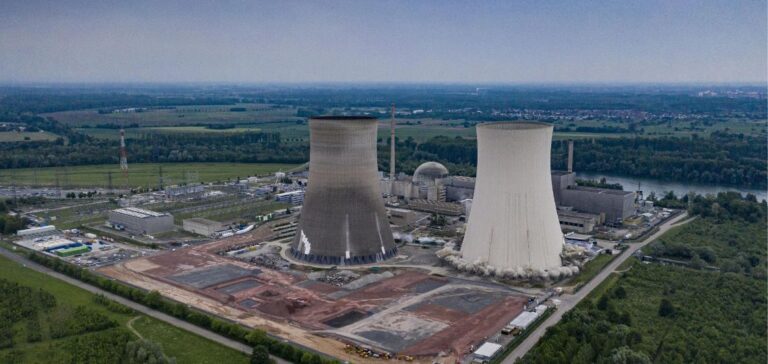Utility company EnBW has received approval from the Baden-Württemberg Ministry of the Environment to dismantle unit 2 of its Neckarwestheim nuclear power plant. This follows the removal of fuel from unit 2 of EnBW’s Philippsburg power plant.
Approval of the decommissioning of the nuclear power plants Neckarwestheim 1, Obrigheim and Philippsburg units 1 and 2
EnBW is the first nuclear power plant operator in Germany to have obtained all decommissioning permits for its plants, including Neckarwestheim 1, Obrigheim and units 1 and 2 of the Philippsburg plant. The approval can be challenged during the one-month appeal period at the administrative court in Mannheim.
In August 2011, the 13th amendment to the Nuclear Energy Act was introduced, signaling the phase out of nuclear power in Germany. As a result, eight units were immediately closed. The remaining reactors were to be closed by the end of 2022.
However, in October last year, the German federal cabinet approved an executive decision by Chancellor Olaf Scholz to allow the country’s last three nuclear power plants to continue operating beyond the end of 2022. This amendment allows the Emsland, Isar 2 and Neckarwestheim 2 plants to operate until April 15, 2023 at the latest.
Obtaining all necessary permits is an important step in Germany’s energy transition
Neckarwestheim 2, a 1400 MWe pressurized water reactor that began operation in 1989, produced over 11 TWh of electricity in 2022. Unit 1 of the Neckarwestheim plant was shut down in 2011 and has been dismantled since 2017. The dismantling of Neckarwestheim 2 will start shortly after its closure on April 15, 2023.
Jörg Michels, Managing Director of EnBW’s Nuclear Division, says: “Today’s receipt of the decommissioning permit for Neckarwestheim 2 is not only an important step for the Neckarwestheim site, but also a strong signal that EnBW is serious about implementing the energy transition.” The dismantling of the central parts of Philippsburg Unit 2 can also start now, following the removal of the last fuel rods from the site.
Environment Minister Thekla Walker stressed the importance of implementing the nuclear phase-out in Baden-Württemberg in a consistent and safety-oriented manner. EnBW’s achievement in obtaining all the necessary permits to dismantle its nuclear power plants is an important step in the country’s transition to renewable energy sources.






















